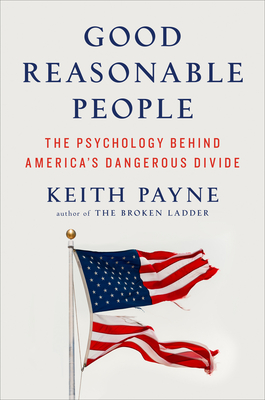

 Viking
Viking
Good Reasonable People: The Psychology Behind America's Dangerous Divide


Key Metrics
- Keith Payne
- Viking
- Hardcover
- 9780593491942
- 9 X 6 X 0.72 inches
- 1.1 pounds
- Psychology > Social Psychology
- English
 Secure Transaction
Secure TransactionBook Description
There has been much written about the impact of polarization on elections, political parties, and policy outcomes. But Keith Payne's goal is more personal: to focus on what our divisions mean for us as individuals, as families, and as communities. This book is about how ordinary people think about politics, why talking about it is so hard, and how we can begin to mend the personal bonds that are fraying for so many of us.
Drawing upon his own research and his experience growing up in a working class, conservative Christian family in small town Kentucky, Payne argues that there is a near-universal human tendency to believe that people who are different from us are irrational or foolish. The fundamental source of our division is our need to flexibly rationalize ideas in order to see ourselves as good people.
Understanding the psychology behind our political divide provides clues about how we can reduce the damage it is causing. It won't allow us to undo our polarization overnight, but it can give us the tools to stop going around in circles in frustrating arguments. It can help us make better choices about how we engage in political debates, how policy makers and social media companies deal with misinformation, and how we deal with each other on social media. It can help us separate, if we choose to, our political principles from our personal relationships so that we can nurture both.
Author Bio
My lab studies how inequality shapes the human mind. We ask questions like: Why do people make more self-defeating decisions when inequality is high? Why does feeling poor sometimes have more powerful effects than actually being poor? Why do people sometimes act in prejudiced ways even when they intend to be fair?
We use the methods of experimental psychology to understand the cognitive and emotional mechanisms behind these pressing social questions. You can learn more about this research in my recent book, The Broken Ladder, from Viking Press.
Source: University of North Carolina
Videos


Community reviews
Write a ReviewNo Community reviews